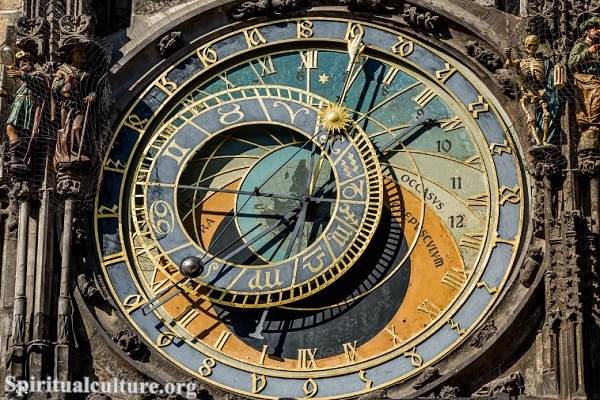In every human heart, there is a quiet yet insistent longing to understand what is truly good and what is truly evil. We feel this pull in moments of choice, in the silent battles of conscience, and in the collective struggles of societies trying to uphold justice and compassion. The question is as ancient as humanity itself: How do we know what is right or wrong?
As “Spiritual Culture,” we invite you to step into this universal exploration. In this article, we journey across traditions and time, diving deeply into how major religions define good and evil. We will see not just how these definitions shape moral behavior but also how they guide spiritual growth and the very fabric of our shared humanity.
The Universal Quest: Why Good and Evil Matter
From the beginning of recorded history, humans have told stories of heroes and villains, light and darkness. These are not mere fables; they reflect a profound spiritual truth: we yearn to align with the good and avoid the evil.
Religions offer frameworks to make sense of this yearning. They give us codes, stories, laws, and practices that help translate abstract ideas into daily life. They also teach that good and evil are not merely personal but cosmic forces influencing our destiny and inner transformation.
Hinduism: Dharma, Karma, and Cosmic Order
Dharma as the Guiding Principle
In Hinduism, good and evil are often understood through the concept of dharma — one’s duty, righteousness, and moral order. Dharma varies based on age, stage of life, caste, and individual capacity but always points toward upholding the cosmic order (ṛta).
As the Bhagavad Gita teaches, “It is better to fail in one’s own dharma than to succeed in another’s.” Here, good is fidelity to one’s true role and responsibilities, while evil is straying from this path.
Karma and Consequences
Another key concept is karma, the law of moral causation. Good actions produce positive results and lead to spiritual liberation (moksha), while evil actions bind one to the cycle of rebirth (samsara).
Thus, Hinduism presents good and evil as dynamic forces deeply linked to intention and action rather than rigid lists of sins and virtues.
Buddhism: Ignorance and Compassion
The Root of Evil: Ignorance
In Buddhism, evil is rooted primarily in ignorance (avidyā), which gives rise to greed, hatred, and delusion — the “Three Poisons.” These defilements trap beings in samsara, the endless cycle of birth and death.
Goodness, in contrast, arises from wisdom (prajñā), compassion (karuṇā), and mindful living. The goal is to cultivate these virtues and overcome the internal forces that lead to suffering.
The Eightfold Path as a Moral Compass
The Noble Eightfold Path offers practical guidance: right view, right intention, right speech, right action, right livelihood, right effort, right mindfulness, and right concentration.
Through this path, one purifies the mind, diminishes evil impulses, and grows in wholesome qualities — ultimately moving toward enlightenment (nirvana), which transcends conventional notions of good and evil.
Christianity: Love, Sin, and Redemption
The Greatest Commandment
At the heart of Christian morality is love: “Love the Lord your God with all your heart… and love your neighbor as yourself” (Matthew 22:37–39). Good is defined by self-giving love that reflects God’s own nature.
The Nature of Sin
Evil in Christianity is often understood as sin, a rebellion against God’s will and a rupture in the relationship between humans and God. The Ten Commandments, the teachings of Jesus, and the example of the saints all illuminate what constitutes sin and virtue.
Redemption and Grace
Yet, Christianity uniquely emphasizes redemption: even those who fall into evil can return through repentance and divine grace. The Cross stands as the ultimate symbol of transforming evil into good, offering hope to all.
Islam: Submission, Justice, and Mercy
The Primacy of Submission
In Islam, good is closely tied to submission to Allah’s will (Islam literally means “submission”). The Quran states, “Indeed, Allah commands justice and good conduct and giving to relatives and forbids immorality and bad conduct and oppression” (Quran 16:90).
Sharia and Moral Law
The Sharia (Islamic law) codifies moral behavior, drawing from the Quran and the Hadith (Prophet Muhammad’s sayings and actions). Acts that align with divine commandments are good; acts that violate them are evil.
Mercy as a Divine Attribute
Allah is called “the Most Merciful” and “the Most Compassionate” — suggesting that beyond legalistic obedience, good also means embodying mercy, forgiveness, and humility.
Judaism: Covenant, Law, and Holiness
Covenant Relationship
In Judaism, good is defined by faithfulness to the covenant between God and the Jewish people. The Torah’s commandments (mitzvot) guide moral and ritual life.
The Call to Holiness
“You shall be holy, for I the Lord your God am holy” (Leviticus 19:2). Goodness is thus imitating God’s holiness, justice, and mercy.
Ethical Responsibility
Jewish tradition emphasizes social justice: “What does the Lord require of you? To act justly and to love mercy and to walk humbly with your God” (Micah 6:8). Evil is any betrayal of this ethical calling.
Daoism: Harmony with the Dao
Natural Virtue
In Daoism, there is less emphasis on absolute moral dichotomies. Good is living in harmony with the Dao, the natural flow of the universe. Forced virtue or rigid moral codes can be seen as artificial and thus potentially harmful.
Wu Wei and Authenticity
The principle of wu wei (non-forcing or effortless action) guides moral behavior: act spontaneously, avoid contrivance, and remain aligned with nature. Evil arises when one acts against this natural harmony.
Indigenous and Tribal Religions: Balance and Reciprocity
Many indigenous and tribal religions define good and evil not as fixed universal absolutes but in terms of balance, reciprocity, and relationship. Actions that honor the land, ancestors, and community are good; actions that disrupt harmony or show disrespect are evil.
Stories, rituals, and taboos help maintain this balance, serving as moral compasses that sustain communal life and spiritual connection.
Sacred Texts: A Mirror and a Map
Scriptures as Moral Foundations
Across traditions, sacred texts serve as mirrors reflecting the heart and as maps guiding the soul. The Bible, Quran, Vedas, Dhammapada, Tao Te Ching, and countless oral traditions reveal what each faith holds as the highest good and deepest evil.
Interpreting with Compassion
While scriptures define moral frameworks, interpretation requires compassion, wisdom, and humility. Literalism can lead to harm; spiritual maturity seeks the spirit behind the letter.
The Inner Battlefield: Personal Moral Struggle
Every religious tradition recognizes that the ultimate battle between good and evil is not merely external but within each human heart.
Temptations, impulses, fears, and desires constantly challenge us. Whether through prayer, meditation, ritual, or service, religious paths offer tools to confront and transform these inner conflicts.
Modern Challenges: New Frontiers of Good and Evil
Technology, Environment, and Global Ethics
Today, questions of good and evil extend to new domains: technology, environmental stewardship, economic justice, and human rights. Religions are called to apply timeless principles to rapidly evolving realities.
The Call to Universal Compassion
In an interconnected world, many faiths now emphasize universal compassion, seeing every being as part of one spiritual family. The traditional boundaries between “us” and “them” are challenged, inviting a more expansive vision of good.
Reflect and Reimagine
What, then, is good? What is evil? Across religions, despite different doctrines and rituals, we see shared threads: love, compassion, justice, humility, and the yearning to align with a transcendent truth.
As Spiritual Culture, we invite you to look into your own heart. How do you define good and evil? How do your actions ripple through your family, community, and the wider world?
Perhaps goodness is not only in grand gestures but in everyday kindness, quiet integrity, and courageous honesty. Perhaps evil is not only in monstrous acts but in small betrayals of the soul.
May this exploration inspire you to cultivate a deeper awareness and live each day with greater wisdom and love — for yourself, for others, and for the sacred mystery that binds us all.


